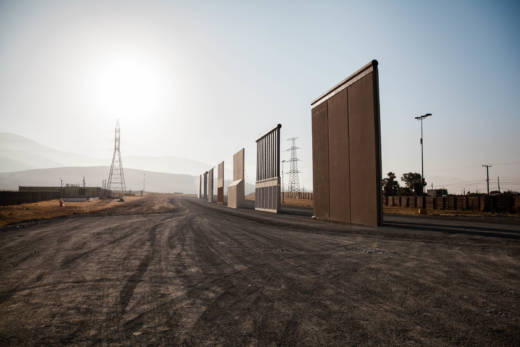A federal appeals court will hear arguments Tuesday by the state of California and advocacy groups who contend the Trump administration overreached by waiving environmental reviews to speed up construction of the president's prized border wall with Mexico.
California is appealing a decision by U.S. District Judge Gonzalo Curiel of San Diego, who sided with the administration in February. The president had repeatedly berated Curiel during the 2016 campaign over an unrelated case involving fraud allegations and the now-defunct Trump University.
At issue before a three-judge panel in Pasadena, California, is a 2005 law that gave the Homeland Security secretary broad authority to waive dozens of laws including the National Environmental Policy Act, Clean Air Act and Endangered Species Act. Those laws require time-consuming reviews and are subject to prolonged legal challenges that can delay or even derail projects.
California argues that the waiver authority expired in 2008, when Homeland Security satisfied congressional requirements at the time on how much wall to build. The state is being joined in the appeal by the Center for Biological Diversity, the Sierra Club, Defenders of Wildlife and Animal Legal Defense Fund.
The administration has issued three waivers in the last year, two to build in parts of California and one to build in part of New Mexico. President George W. Bush's administration issued the previous five waivers, allowing the government to quickly extend barriers to about one-third of the border.
